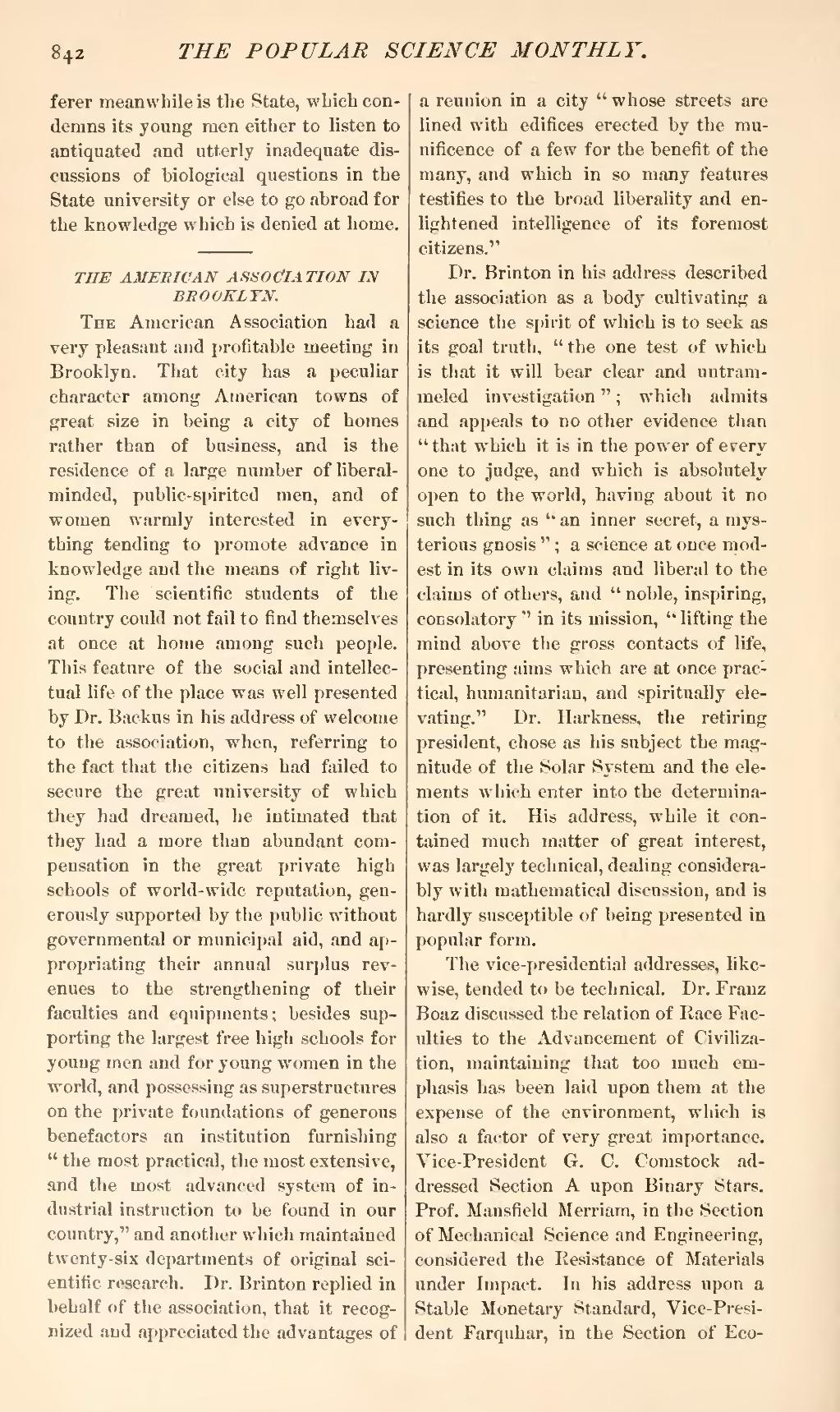ferer meanwhile is the State, which condemns its young men either to listen to antiquated and utterly inadequate discussions of biological questions in the State university or else to go abroad for the knowledge which is denied at home.
THE AMERICAN ASSOCIATION IN BROOKLYN.
The American Association had a very pleasant and profitable meeting in Brooklyn. That city has a peculiar character among American towns of great size in being a city of homes rather than of business, and is the residence of a large number of liberalminded, public-spirited men, and of women warmly interested in everything tending to promote advance in knowledge and the means of right living. The scientific students of the country could not fail to find themselves at once at home among such people. This feature of the social and intellectual life of the place was well presented by Dr. Backus in his address of welcome to the association, when, referring to the fact that the citizens had failed to secure the great university of which they had dreamed, he intimated that they had a more than abundant compensation in the great private high schools of world-wide reputation, generously supported by the public without governmental or municipal aid, and appropriating their annual surplus revenues to the strengthening of their faculties and equipments; besides supporting the largest free high schools for young men and for young women in the world, and possessing as superstructures on the private foundations of generous benefactors an institution furnishing "the most practical, the most extensive, and the most advanced system of industrial instruction to be found in our country," and another which maintained twenty-six departments of original scientific research. Dr. Brinton replied in behalf of the association, that it recognized and appreciated the advantages of a reunion in a city "whose streets are lined with edifices erected by the munificence of a few for the benefit of the many, and which in so many features testifies to the broad liberality and enlightened intelligence of its foremost citizens."
Dr. Brinton in his address described the association as a body cultivating a science the spirit of which is to seek as its goal truth, "the one test of which is that it will bear clear and untrammeled investigation"; which admits and appeals to no other evidence than "that which it is in the power of every one to judge, and which is absolutely open to the world, having about it no such thing as "an inner secret, a mysterious gnosis"; a science at once modest in its own claims and liberal to the claims of others, and "noble, inspiring, consolatory" in its mission, "lifting the mind above the gross contacts of life, presenting aims which are at once practical, humanitarian, and spiritually elevating." Dr. Harkness, the retiring president, chose as his subject the magnitude of the Solar System and the elements which enter into the determination of it. His address, while it contained much matter of great interest, was largely technical, dealing considerably with mathematical discussion, and is hardly susceptible of being presented in popular form.
The vice-presidential addresses, likewise, tended to be technical. Dr. Franz Boaz discussed the relation of Race Faculties to the Advancement of Civilization, maintaining that too much emphasis has been laid upon them at the expense of the environment, which is also a factor of very great importance. Vice-President G. O. Comstock addressed Section A upon Binary Stars. Prof. Mansfield Merriam, in the Section of Mechanical Science and Engineering, considered the Resistance of Materials under Impact. In his address upon a Stable Monetary Standard, Vice-President Farquhar, in the Section of Eco-

